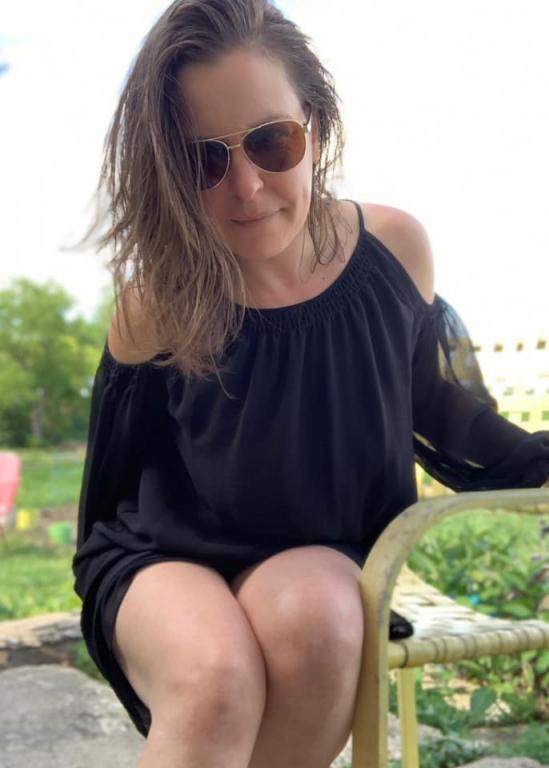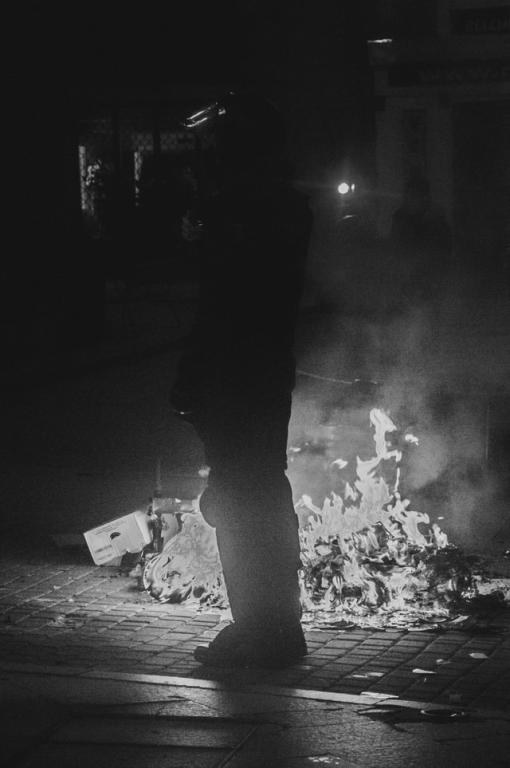
Conversations are controversial because there is a potential to understand that which you oppose. Once one is willing to understand the thing that they originally opposed, there is no longer opposition—which means there is no longer division. Can you imagine what the world could look like if we left the opportunistic potentiality of division by the wayside and discovered we are all One?
Conversations are ways in which we connect to Other. A connection operates on the same frequency that leads to the love of the neighbor. It is because we are not willing to connect with our neighbor that we have been so deficient in our capacity to love our neighbor as God loves us and as we are called to love ourselves. We haven’t connected to our neighbor.
After I read Psychedelic Christianity by Jack Call, I was invited to consider a new view of my neighbor: by proximity. Initially, that was a jarring realization. In turn, I sought a new way of understanding people. I wanted to reduce the lack of connections I had created in order to fully understand myself. Oddly, that meant I had to understand others more compassionately and without judgment. It means that I resist the desire to judge others because in doing so, I condemn myself. (Romans 2:1)
More so, it means that I start offering grace to those whom I have condemned because they have condemned me. For there is now no condemnation for those who are in Christ Jesus. (Romans 8:1) And to start, this means that I extend grace to my in-laws who have wreaked havoc on my marriage. This means that I extend grace and forgiveness to my mother and sisters, despite the treacherous and wretched things they have accused me of. From there, it means that all those whom I have decided no longer “deserve” my friendship will be but a peaceful memory in my mind and heart as I let all the anger and contempt dissolve.
This does not mean that I invite these people back into my life. It means that I show gratitude for the place they served in my life, to reflect the things I needed to see. What did I need to see? The capacity within me to do, say, and behave exactly as they do. That’s what Romans 2:1 is about to me. It’s about acknowledging that when I am willing to condemn another, to judge another, I must be also willing to point toward myself and see that I have the potential to mimic each and every extreme behavior that another does for ill.
That’s not a simple task. Taken to the extreme depravity of humankind, that means I must be willing to see myself as Hitler, as a pedophile, as a sex-trafficker, as a slave-trader, as a rapist, as a murderer, as a racist. Many of us are not willing to admit that if given a different set of circumstances in life, each, and every one of us has the potential to choose evil over good. Given a completely different set of experiences, each one of us has the potential to be the next Donald Trump, Joe Biden, Vladimir Putin, or Kim Jong-un.
The truth is what sets us free. In freeing ourselves—our minds and our hearts—we must be willing to look at that which we condemn and judge as evil and accept that in our freedom, in our free will, we elected to choose good over evil but that doesn’t mean that choice was easily made. Who of us has not been tempted to act on our anger and vindictive thoughts? Who of us has not been seduced into believing that just this once, we could take our revenge, and no one would know?
It’s dangerous for us to sit on the sides and cling to the idea that we are not as potentially evil as the evil we see around us. Are we sinners or saints? And if we are so willing to call ourselves saints, are we also willing to suggest that the evil we see practiced is practiced by saints as well? Or are they the sinners and we are the saints?
No. What I see transpiring in humankind is our inability to recognize that the evil we call out is the evil we have the capacity to perpetuate. We must be mindful of this when we are willing to condemn another.
You, therefore, have no excuse, you who pass judgment on someone else, for at whatever point you judge another, you are condemning yourself, because you who pass judgment do the same things. (Romans 2:1)
How do we counteract this way of judging others? Conversation. Conversations must be had, no matter how controversial the questions and exchanges may be. The context of any conversation will always depend on the authentic shared experiences of others with a willingness to be bold enough to tell their truths. If everyone’s views cannot be received equally, equality will never reign as a virtue embraced by all.
If we are not willing to come together to converse and share our experiences, we will never be able to understand the other and therefore will be left inept to remedy the problems of the heart. Our hearts are suffering from our unwillingness to listen to the heart of another. In doing so, we only perpetuate the evils that we claim we want to end. So, let’s get to talking to one another and once we have joined the discussion, remember the words of James 1:19, My dear brothers and sisters, take note of this: Everyone should be quick to listen, slow to speak and slow to become angry.
















